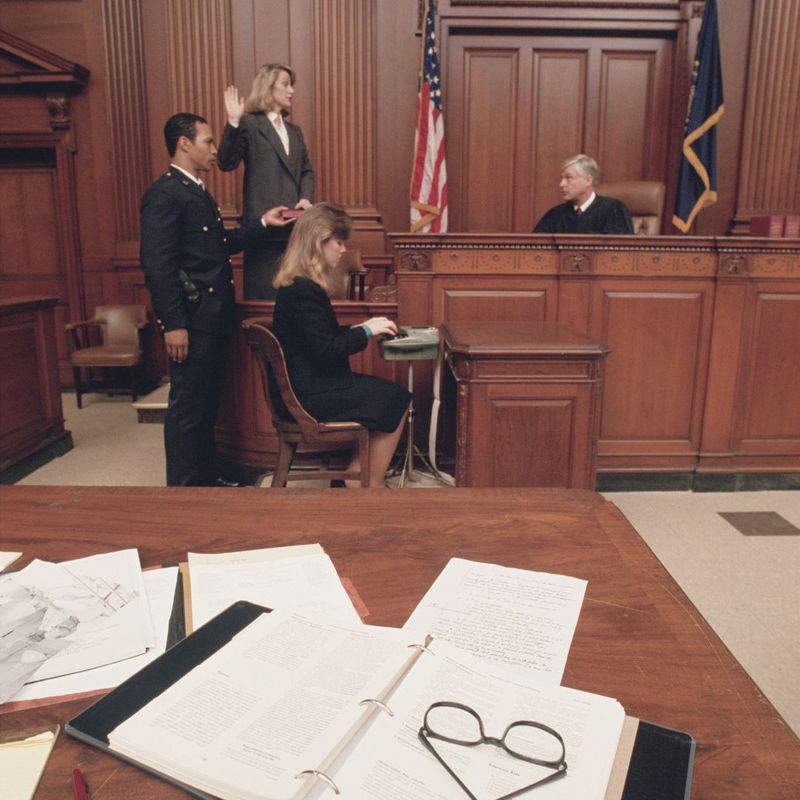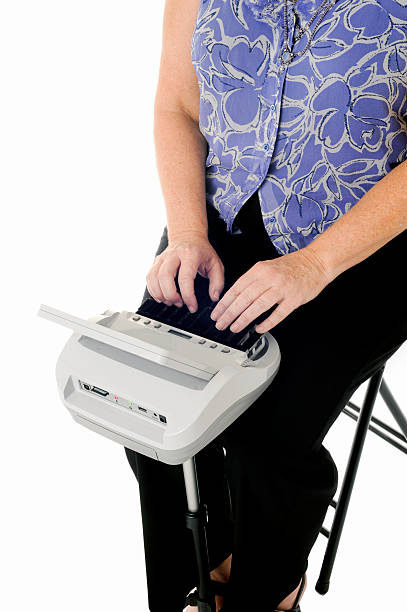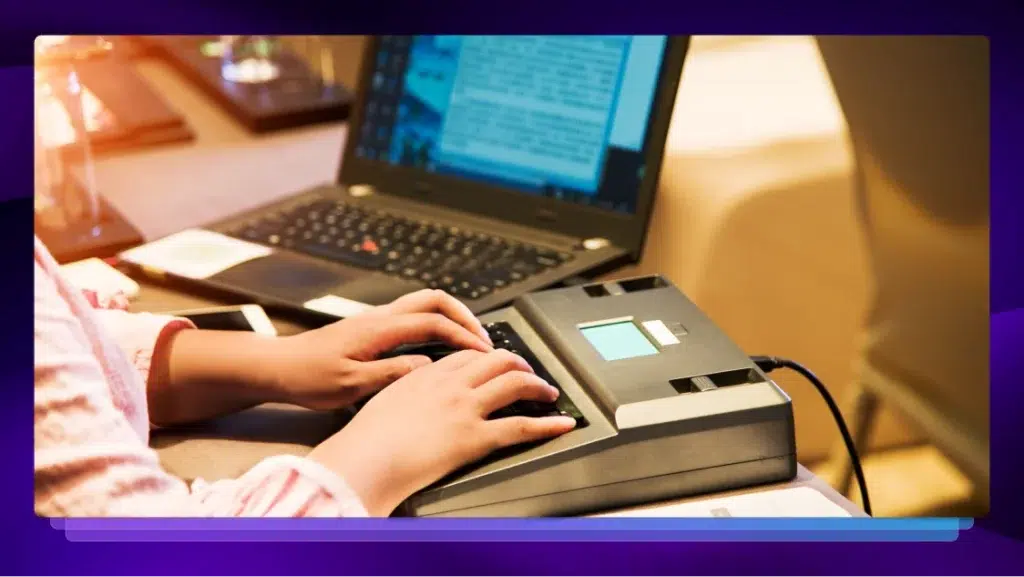Court Typist Job Openings: Where to Find Legal Transcription Work
Discover the Crucial Skills and Obligations of a Court Typist in Today's Lawful Landscape
As a court typist, you hold an important position in the legal system. Your skills exceed simply typing; they include recognizing complicated lawful terms and treatments while ensuring accuracy in every record. You team up carefully with courts and attorneys, making your role vital for effective interaction. What details skills do you need, and exactly how can you adjust to the ever-evolving technological landscape? Let's discover this even more.
The Role of a Court Typist in the Judicial System
As the foundation of the judicial system, a court typist plays an essential duty in assuring that legal process are properly documented. You're accountable for recording everything from witness statements to courts' judgments, capturing every information with accuracy. Your work assists keep a irreversible and clear record of court activities, which is vital for future recommendation and appeals.In the court, you're frequently the unhonored hero, quietly assuring that all talked words come to be created documents. You maintain confidentiality, recognizing the sensitive nature of lawful issues. You likewise work together closely with clerks, attorneys, and judges to guarantee the smooth circulation of details. By working successfully under stress, you add to the general effectiveness of the judicial procedure. Your attention to information and commitment to accuracy not just promote the integrity of the court yet additionally support the broader search of justice in culture.
Vital Skills Required for Court Typists
Court typists need an unique mix of skills to master their essential duty within the judicial system. Firstly, you must have outstanding inputting abilities, commonly achieving rates of 70 words per min or more. Precision is vital; even a small mistake can cause substantial misunderstandings in legal records. You'll additionally require solid focus to detail, making certain every word is recorded correctly.Additionally, good organizational abilities are important for taking care of several instances and files effectively. Being tech-savvy is important, as you'll use different software application for word handling and record administration. Strong communication abilities aid you engage with courts, lawyers, and various other court personnel effectively.Lastly, a feeling of professionalism and reliability and discretion is a must, as you'll manage sensitive details daily. By sharpening these skills, you'll be well-prepared to contribute substantially to the courtroom atmosphere.
Comprehending Lawful Terminology and Procedures
As a court typist, you require to grasp vital lawful terms and procedures to do your task efficiently. Comprehending these principles not just assists you transcribe accurately however additionally assures you can follow the flow of court procedures. Let's explore the vital lawful vocabulary and a summary of court procedures you should know.

Key Legal Terms
Comprehending essential legal terms is crucial for anyone operating in a court setting. You'll often come across terms like "complainant," which describes the person initiating a claim, and "offender," who replies to the accusations. Recognizing the distinction in between "civil" and "criminal" cases assists you grasp the context of the process. Experience with "subpoena" warranties you comprehend the legal documents compelling witnesses to affirm. Additionally, terms like "proof" and "testament" are crucial, as they relate directly to the information offered in court. Mastering these terms not just improves your effectiveness as a court typist but also guarantees that you add to the precision and clarity of lawful records. Your duty hinges on exact terminology, so don't take it lightly!
Court Procedures Overview
Familiarity with key lawful terms sets the stage for comprehending court procedures. Understanding just how a court room features is essential for any type of court typist. You'll come across processes like arraignments, where defendants hear charges, and motions, which are ask for a court ruling. Familiarize on your own with the roles of clerks, lawyers, and judges, as each plays a vital component in process. Understanding the circulation of a test-- from jury option to shutting disagreements-- helps you accurately catch the procedures - court typist. Additionally, understanding the significance of preserving a accurate and objective document can not be overstated. By mastering these elements, you'll boost your effectiveness in documenting crucial court activities and contribute substantially to the legal procedure. Your function is essential in protecting the honesty of court records
The Influence of Modern Technology on Court Typing
Modern technology's changed court typing in considerable methods. With electronic transcription tools, you can raise performance and accuracy, making your task much easier than ever. Plus, remote court process have actually changed how you approach your job, calling for flexibility Full Article to new layouts and technologies.
Digital Transcription Tools
As digital transcription tools proceed to develop, they're transforming the means court typists execute their obligations. These tools improve the transcription procedure, enabling you to record spoken words accurately and efficiently. With voice recognition software program, you can record real-time proceedings, minimizing manual input and lessening errors.Moreover, cloud-based platforms allow very easy access to records, so you can work collaboratively with legal groups and guarantee everybody's on the same web page. Automated formatting features save you time on recurring jobs, letting you concentrate on web content quality.Additionally, electronic devices boost protection, shielding sensitive details with encrypted storage and regulated accessibility. By embracing these technologies, you can enhance your productivity and keep the high requirements required in the lawful field.
Remote Court Procedures
The increase of remote court proceedings has significantly transformed the landscape for court typists. You currently depend on modern technology to capture and transcribe real-time hearings from your office or home. Familiarity with video clip conferencing platforms is important, as you'll require to navigate them seamlessly to assure an exact document. You'll likewise need to take care of audio high quality, as history noise or link concerns can interrupt your job. Additionally, remote process demand quick thinking; you may need to clear up declarations or demand repeats in real-time. Staying arranged and efficient is vital, as due dates remain limited. Welcoming these technical improvements not just improves your abilities but additionally assures you continue to be a vital property in today's evolving legal setting.
Precision and Focus to Detail in Transcription
Accuracy and focus to detail are crucial in transcription, especially for court typists. court typist. Every word counts when you're transcribing legal process. check out here A solitary mistake can change the meaning of a statement, potentially influencing the end result of a situation. You have to listen meticulously, guaranteeing that you catch every nuance and inflection in the audio speaker's voice.Your capacity to catch typos and grammatical mistakes is necessary. You do not just type; you confirm that the last file is a specific representation of what was claimed in court. This calls for an eager eye and an extensive understanding of legal terminology.Moreover, you'll require to be aware of different accents and talking styles, as courts can hold a selection of audio speakers. By refining your accuracy and interest to information, you'll maintain the integrity of legal files and add substantially to the judicial procedure. Your diligence around truly makes visit homepage a difference

Time Management and Organizational Skills
While managing several tasks, effective time management and business abilities are crucial for court typists. You'll usually juggle different deadlines, from transcribing court proceedings to preparing legal files. Prioritizing your workload is important; recognize immediate jobs and tackle them first to ensure timely submissions.Organizational skills come into play when you're arranging through situation data, transcripts, and notes. Keeping everything neatly categorized not just saves time however also minimizes the risk of error. Using devices like schedules, to-do checklists, or specialized software can assist you remain on track and handle your time effectively.Moreover, setting details objectives for each and every work session can improve your performance. Damage larger tasks into smaller tasks to make them extra manageable. By refining these skills, you'll not just enhance your effectiveness however likewise contribute considerably to the smooth operation of the lawful procedure, assuring everything runs like clockwork.
Continuing Education and Specialist Development Opportunities
Investing in your skills does not quit with time management and company. As a court typist, you'll discover that continuing education and expert advancement are necessary to remaining competitive in the lawful area. Try to find workshops or on the internet training courses concentrating on sophisticated inputting methods, lawful terms, and transcription software application. These can develop your skills and aid you adapt to the latest technologies.Networking is just as vital. Join professional companies like the National Court Reporters Association (NCRA) or neighborhood legal organizations. They frequently offer sources, training sessions, and conferences that can improve your knowledge and attach you with peers.Don' t ignore qualification programs that can improve your reliability and marketability. Remaining upgraded with the most up to date trends and ideal practices in legal paperwork will certainly boost your effectiveness and accuracy, making you an indispensable property to any legal group. Buy your development, and you'll reap the incentives throughout your career.
Regularly Asked Inquiries
What Is the Common Wage Range for a Court Typist?
A court typist's regular salary ranges from $30,000 to $55,000 each year, depending on experience and location. You may also locate opportunities for growth with added skills, causing increased pay in the lawful area.

Are Court Typists Required to Have a Legal Degree?
Court typists don't require a legal degree, however having one can be valuable. You'll usually discover that strong inputting abilities and knowledge of legal terms are more vital for success in this role.
What Are the Work Hours for a Court Typist?

How Do Court Typists Make Sure Confidentiality in Their Job?
You assure confidentiality by firmly handling delicate documents, making use of encrypted software program, and complying with stringent methods. You remain familiar with personal privacy regulations and only share details with accredited workers, maintaining trust fund in the judicial process.
Can Court Typists Work From Another Location or Freelance?
Yes, you can work from another location or freelance as a court typist, especially if you have trusted modern technology and a safe setting. Numerous attorneys currently embrace remote work, providing adaptability and opportunities for independent typists. As the foundation of the judicial system, a court typist plays an essential role in ensuring that lawful proceedings are properly documented. As a court typist, you require to comprehend essential legal terms and treatments to do your job efficiently. Understanding these terms not only boosts your performance as a court typist but also assures that you add to the accuracy and quality of legal records. The increase of remote court process has considerably changed the landscape for court typists. As a court typist, you'll locate that proceeding education and learning and expert development are essential to remaining competitive in the legal area.